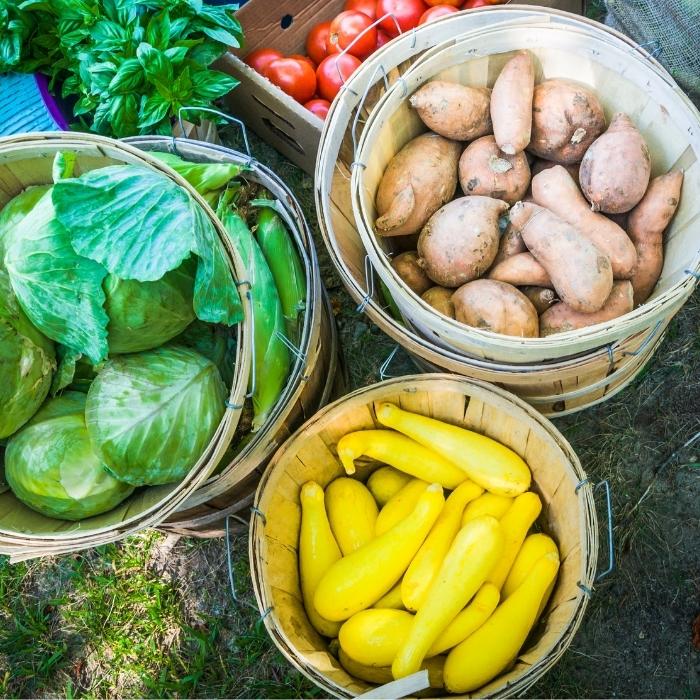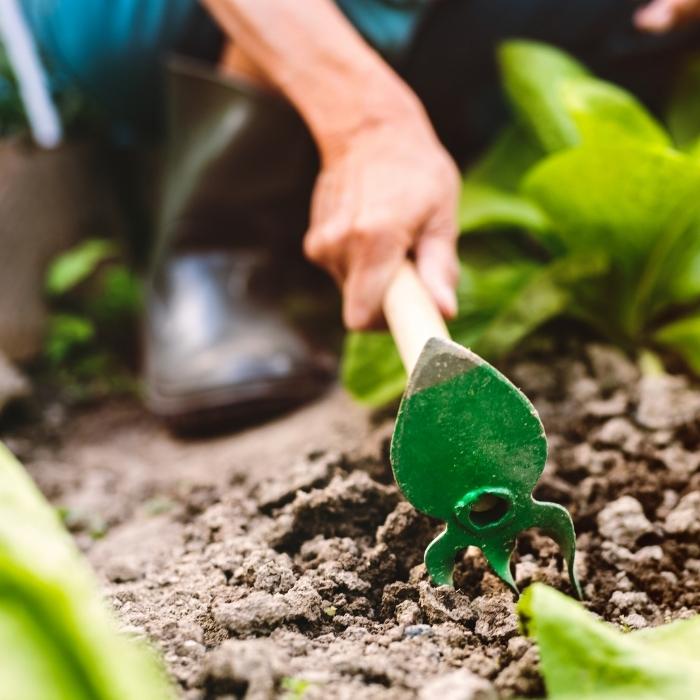Everybody knows that working outside in the garden is good for physical health, but did you know it’s also healthy for your mental health? Here are some reasons gardening can be beneficial for mental health and provide an outlet for stress relief.
1. Gardening is a form of meditation.
Meditation can be challenging for some people, but gardening isn’t just a calming activity — it’s also a form of meditation.
Like traditional meditation, gardening provides a sense of calmness and serenity through mindfulness. The practice is meditative in several ways. When you garden, you focus on the present moment and allow yourself to concentrate on your actions without distracting yourself with other thoughts or worries. As you garden, you focus solely on the task at hand and achieve the goal of growing beautiful plants. You see the returns of your efforts unfold before you, which is rewarding and uplifting.

Gardening provides a sense of calmness and serenity through mindfulness.
2. Gardening is a mood lifter.
The mental health benefits of gardening are numerous. For example, a study found that gardening lowers the stress hormone cortisol. Plus, exposure to sunlight increases your body’s production of serotonin, a neurotransmitter that contributes to feelings of happiness and well-being. Gardening is also an immersive and focused activity, so putting all your attention into what you’re doing is easy. This can help you avoid distractions and immerse yourself in the moment.
Why is gardening so good for your mood? For one, it uses all five senses:
- Sight (the colors)
- Sound (the trickling of water)
- Smell (the flowers)
- Taste (the herbs)
- Touch (the soil)
Another reason is that it gives you control over your environment. Finally, it lets you escape everyday problems while moving your body.
3. Gardening provides you with brain-healthy food.
Gardening supplies your diet with fresh produce straight from your backyard. Fruits and vegetables are rich in antioxidants that reduce inflammation, a factor in depression. In addition, when you grow veggies in your own backyard, it doesn’t sit on store shelves and lose nutrients. So, you’re eating more nutritious produce. In contrast, produce in grocery stores is shipped across the country or world, stored for some time, packaged, and shipped again. Then it’s stocked on shelves for a few weeks or months, brought home by shoppers, and cooked before it reaches your plate.
Suppose you usually buy produce from grocery stores or eat frozen vegetables out of season (as opposed to buying locally from the farmer’s market). In that case, gardening could provide an avenue for adding tastier, healthier food to your diet.
In addition, you expose your skin to sunlight when you garden. Doing so increases vitamin D production, and having a healthy vitamin D level improves sleep and may lower your risk of depression. So there are many benefits to being outdoors.

Freshly picked veggies supply you with brain-healthy, delicious food.
4. Gardening makes you feel happier.
Some experts believe gardening releases endorphins, natural chemicals that make you feel good. In fact, they’re the same chemicals your body releases when you go for a long run. Runners refer to these good feelings as the runner’s high. When your body releases endorphins, you may notice your mood brightens, and your stress levels decline significantly. One gardener even said, “it’s like I’ve taken a bath in happiness.”
5. Gardening is time in nature.
Being out in the open air, getting your hands dirty, and forgetting about your worries are among the best ways to reduce anxiety associated with the stresses and strains of everyday life. Another reason gardening is so beneficial for mental health is because it helps you reconnect with nature in a way that modern living interferes with. Spending time outdoors, breathing in the fresh air, feeling the sun on your face, smelling flowers and freshly cut grass — these all have positive effects on the mind and body.
6. Gardening is movement.
Gardening is a physical activity that enhances mental health. Gardening gets you away from screens and gets your body moving. You squat, lift, and push heavy things. Such movement is not only good for your body but also your mind. Studies show that physical exercise positively impacts mental health by reducing depressive thoughts. One study even found movement to be more effective than a popular antidepressant for easing depression (and without any harmful side effects).
Finally, gardening itself is often described as calming — you don’t need to be an expert gardener or feel stressed about what you’re doing; just getting outside with some seeds or plants will benefit your mind.

You don’t need to be an expert gardener to enjoy the mental benefits of gardening.
The Bottom Line
With gardening, you gain many mental health benefits. One thing that makes it a beneficial activity is that it provides a combination of physical activity and mental stimulation. Physical activity can help reduce stress and anxiety, while mental stimulation helps keep your mind active, which improves brain health.
Gardening also has many cognitive benefits. Gardening involves remembering steps in a specific order, which helps with memory retention. Gardening also gives you a sense of accomplishment after growing something successfully. There are so many reasons gardening is beneficial for your mental health. It’s worth trying if you haven’t already!






